- Home
- F. Paul Wilson
Legacies
Legacies Read online
Praise for Legacies
"With Wilson at the helm. Repairman Jack towers above other such characters and similar plot lines . . . Wilson has a knack for keeping the plot going at an even pace, with just the right amount of action and intrigue mixed in. Suspense fans won't be disappointed by this stellar literary effort from Wilson. Whether it is honor or suspense, the author knows how to keep the reader engrossed until the final page!" —Shelf Life
"Jack is still a fascinating character . . . and the book is a fun read. Swift-moving and fun." —Omaha World-Herald
"Repairman Jack is a 1990s Robin Hood.... When a book reviewer exposed every year to a bunch of cliff-hangers— good, bad, or indifferent—sits riveted in a living room chair for three hours, that's a recommendation that this hero's exploits hold the reader's interest." —Des Moines Register
"Repairman Jack, Paul Wilson's most popular Actional character. returns in legacies, a quirky, fast-paced adventure bound to please fans of the start of Wilson's bestselling thriller The Tomb" —Abilene Reporter-News
"A high-energy thriller with a well-executed payoff."
—Mystery News
"Repairman Jack returns in a clever thriller that's sure to delight Wilson's fans.... Repairman Jack is a strong man whose moments of compassion don't seem forced, an enigma without being annoyingly mysterious. Confronted with a baffling puzzle, Jack relies on a combination of skill and luck to solve the mystery with a minimum of violence. Wilson's many fans will enjoy this second Repairman Jack story and no doubt hope the author doesn't wail quite so long before writing a third one." —Booklist
"Urban mercenary Repairman Jack is hack after a long hiatus. . . . Jack still thrills with cliff-hanger escapes and ingenious snares for the blundering bad guys."
—Publishers Weekly
NOTE: If you purchased this book without a cover you should be aware that this book is stolen property. It was reported as "unsold and destroyed" to the publisher. and neither the author nor the publisher has received any payment for this "stripped book."
This is a work of fiction All the characters and events portrayed in this book are either products of the author's imagination or arc used fictitiously.
LEGACIES
Copyright © 1998 by F. Paul Wilson All rights reserved. Edited by David G. Hart well A Tor Book
Published by Tom Doherty Associates. LLC 175 Fifth Avenue New York. NY 10010
www tor-forge con
Tor is a registered trademark of Tom Doherty Associates. LLC.
ISBN-13: 978-0-7653-4309 I ISBN-10: 0-7653-6309-7
Library of Congress Card Catalog Number 98 14322
First Edition: August I99K
First Mass Market Edition: January 2000
Second Mass Market Edition: January 2009
Printed in the United States of America
0987654321
Also By F. Paul Wilson
HEALER (1976)*
WHEELS WITHIN WHEELS (1978)*
AN ENEMY OF THE STATE (1980)*
BIACK WIND (1988)
SOFT & OTHERS (1989)
DYDEETOWN WORLD (1989)
THE TERY 1990)
SIBS (1991)
THE SELECT (1993)
IMPLANT (1995)
MIRAGE (with Matthew J. Costello; 1996)
DEEP AS THE MARROW (1997)
NICHTKILL (with Steve Lyon; 1997)
MASQUE (with Matthew J. Costello; 1998)
THE BARRENS & OTHERS (1998)
The Adversary Cycle:
THE KEEP (1981)
THE TOMB (1984)
THE TOUCH (1986)
REBORN (1990)
REPRISAL (1991)
NIGHTWORLD (1992)
Editor:
FREAK SHOW (1992)
DIAGNOSIS: TERMINAL (1996)
(combined in THE LaNAGUE CHRONICLES (1992)1 http://www.repairmanjack.com
ACKNOWLEDGMENTS
For technical advice, many thanks to Simson Garfinkel, writer, commentator on the wired life, and honest-to-God, real-life building hacker (retired). Jack uses a variation on the Garfinkel Method of elevator surfing.
To my wife and first reader, Mary.
To Joe Bogdan, MD, and Daphne Keshishian, MD, for sharing their experiences with pediatric AIDS.
To the WB store managers of District 1: remember September 26, 1996, in Albany? Pages 67-82 are for you.
And for their generous and expert editorial help: Elizabeth Monteleone's sharp eye for character detail, Steven Spruill's psychological insights, Deidre Lonza's copyediting skills and candy savvy, and Al Zuckerman, the maestro.
AUTHOR'S NOTE
Jack is back.
Of all my seventeen novels, none has generated more mail than The Tomb. It's been in print since 1984, and I still get a steady stream of letters asking the same question: When are you bringing back Repairman Jack?
The truth is, I've brought him back half a dozen times in short stories and novelettes, and as a supporting character in Nightworld. But never in another novel of his own.
Why no Repairman Jack novel since The Tomb? Lots of reasons. Prime among them is that Jack is very special to me. I didn't want to abuse him, so I held him back, letting him loose for a quick hit, then tucking him away again, waiting for the right set of circumstances where he could range free for an entire novel.
Legacies is that novel.
And the nicest thing is, I found I still like working with Jack. We're going to do this again sometime. But I promise not to wait another decade and a half before I get down to it. (Neither of us is getting any younger, you know.)
NB: There is no Center for Children with AIDS on Seventh Avenue near St. Vincent's. I made it up. Tragically, I did not have to make up the kids who need such a facility. http://www.repairmanjack.com
FRIDAY
1
"It's okay!" Alicia shouted as the cab jerked to the left to swing around a NYNEX truck plodding up Madison Avenue. "I'm not in a rush!"
The driver—curly dark hair, a Saddam Hussein mustache, and swarthy skin—didn't seem to hear. He jogged his machine two lanes left, then three lanes right, hitting the brakes and gunning the engine, hitting and gunning, jerking Alicia back and forth, left and right in the rear seat, then swerving to avoid another yellow maniacmobile trying a similar move through the morning traffic.
Her cab's net gain: one car length. Maybe.
Alicia rapped on the smudged, scratched surface of the plastic divider. "Slow down, dammit! I want to arrive in one piece."
But the driver ignored her. If anything, he upped his speed. He seemed to be engaged in a private war against every other car in Manhattan. And God help you if you were a pedestrian.
Alicia should have been used to this. She'd grown up in Manhattan. She hadn't been here for a while, though. She'd moved away at eighteen for college and had stayed away for medical school and her residencies in pediatrics and infectious diseases. She hadn't wanted to come back—what with that man and her half brother Thomas still living here—but St. Vincent's had made her the proverbial offer she couldn't refuse.
So now, after a little over a year, she was still getting used to the city's changes. Who'd have believed they'd be able to scour off the grim sleaziness that she'd assumed to be permanently etched on Times Square?
Cabbies too. What had happened to them? They'd always been pushy, brazen drivers—you had to be to get around in this city—but this new crop were maniacs.
Finally they hit the Forties.
Almost there, Alicia thought. Maybe I'll live to see another sunset after all.
But as they neared Forty-eighth she noticed her cab was still in the center lane, accelerating. At first she thought he was going to miss her turn off, then she saw the opening: two lanes to the right, behind a graffi
ti-coated delivery truck and just ahead of a bus pulling away from the curb.
"You're not!" Alicia cried. "Please tell me you're not going to try to—"
He did. And he made it—just barely—but not without forcing the bus to slam on its brakes and give him a deafening blast from its horn.
The cabbie floored it along the open stretch of Forty-eighth, then swerved violently rightward toward the curb. The cab jerked to a halt at the address Alicia had given him when she'd slid into its rear seat down in Greenwich Village.
"Six-seventy-five," he said.
Alicia sat there fuming, wishing she were strong enough to break through the partition and throttle him. She wasn't. But she could give him a taste of his own medicine—in reverse.
Slowly, she inched toward the curbside door, opened it with the greatest of care, and edged herself out. Then she took out her wallet and began to count her change… carefully. She had about two dollars' worth. She picked out a dollar-seventy-five in dimes and nickels.
"Come on, lady," the cabbie said, leaning over the passenger seat and looking up at her through the window. "I haven't got all day."
Alicia made no sign she'd heard him as she slowly pulled five singles from her wallet, one… at… a… time. Finally, when she had exactly six-seventy-five in her hand, she handed it through the window.
And waited.
It didn't take long—three seconds, tops—before the driver popped out his door and glared at her over the roof of his cab.
"Ay! Where is tip?" He pronounced it teep.
"Pardon me?" Alicia said sweetly. "I can't hear you."
"My tip, lady! Where is it?"
"I'm sorry," she said, holding a hand to her ear. "Your lips appear to be moving, but I can't hear a word you're saying. Something about my slip?"
"My tip, goddammit! My tip! My tip! My fucking tip!"
"Did I enjoy my trip?" she said, then let her voice go icy. "On a scale of one to ten, I enjoyed it zero… exactly the amount of your tip."
He made a move to come around the cab, probably figuring he could intimidate this slight, pale woman with the fine features and the glossy black hair, but Alicia held her ground. He gave her a venomous look and slipped back into his seat.
As she turned away, she heard the cabbie shout an inarticulate curse, slam his door, and burn rubber as he tore off.
We're even, she thought, her anger fading. But what an awful way to start a beautiful fall day.
She put it behind her. She'd been looking forward to this meeting with Leo Weinstein, and she wasn't going to let some crazy cabbie upset her.
At last she'd found an attorney who wasn't afraid to tackle a big law firm. All of the others she'd tried—those in her limited price range—had reacted with a little too much awe when they'd heard the name Hinchberger, Rainey & Guran. Not Weinstein. Hadn't fazed him in the least. He'd read through the will and within a day came up with half a dozen suggestions he seemed to believe would put the big boys on the defensive.
"Your father left you that house," he'd said. "No way they can keep it from you. Just leave it to me."
And so she'd done just that. Now she was going to see what he'd accomplished with the blizzard of paper he'd fired at Hinchberger, Rainey & Guran.
She heard a honk behind her and stiffened. If it was that cab…
She turned and relaxed as she saw Leo Weinstein waving through the open window of a silver Lexus. He was saying something she couldn't catch. She stepped closer.
"Good morning," she said.
"Sorry I'm late," he said. "The LIE was jammed. Just let me pull into the garage down there and I'll be right with you."
"No problem."
She was almost to the front door of the building where Cutter and Weinstein had their offices when she was staggered by a thunderous noise. The shock wave slammed against her back like a giant hand and almost knocked her off her feet.
Turning she saw a ball of flame racing skyward from the middle of the block, and flaming pieces of metal crashing to the ground all about her. Cars were screeching to a halt as pedestrians dove for the pavement amid glittering shards of glass tumbling from windows up and down the block. Alicia jumped back as a blackened, smoking chunk of a car trunk lid landed in front of her and rolled to her feet.
An icy coil of horror tightened around her throat as she recognized the Lexus insignia.
She craned her neck to look for Leo's car, but it was… gone.
"Oh, no!" she cried. "Oh, my God, no!"
She hurried forward a few steps on wobbly knees to see if there was anything she could do, but… the car… nothing was left where it had been… just burning asphalt.
"Oh, God, Leo!" she gasped. "Oh, I'm so sorry!"
She couldn't breathe. What had happened to all the air? She had to get away from here.
She forced her stricken body to turn and blunder back up the sidewalk, away from the smoke, the flames, the wreckage. She stopped when she reached Madison Avenue. She leaned against a traffic light post and gulped air. When she'd caught her breath, she looked back.
Already the vultures were gathering, streaming toward the flames, wondering what happened. And not too far away, sirens.
She couldn't stay here. She couldn't help Weinstein and she didn't want to be listed as a witness. The police might get it into their heads that she was hiding something, and they might start looking into her background, her family. She couldn't allow that. Couldn't stand it.
Alicia didn't look for a taxi—the thought of being confined was unbearable. She needed space, light, air. She turned downtown.
Poor Leo!
She sobbed as she started walking, moving as fast as her low-heeled shoes would allow. But even if she'd worn her sneakers she would not have been able to outrun the guilt, the terrible suspicion that she was somehow responsible for Leo Weinstein's death.
2
"Thank God you're here!" Raymond said as Alicia walked through the Center's employee entrance. "I've been beeping you since eight o'clock. Why didn't…?" His voice trailed off as he looked at her. "Christ, Alicia, you look like absolute shit."
Actually, that was a generous assessment of how she felt, but she didn't want to talk about it.
"Thank you, Raymond. You don't know the half of it."
She didn't head for her office, but toward the front reception area instead. Raymond paced her.
"Where are you going?"
"Just give me a minute, will you, Raymond?" she snapped. "I'll be right back."
She regretted being so short with him, but she felt stretched to the breaking point. One more tug in the wrong direction…
She was vaguely aware of Tiffany saying hello as she hurried past the reception desk on her way to the front door. Stepping aside to allow a middle-aged woman and her two grandchildren to enter, Alicia peered through the glass at the street outside, looking for the gray car.
She was sure it had followed her back from Forty-eighth Street. At least she thought it had. A gray car—what would you call it? A sedan? She didn't know a damn thing about cars. Couldn't tell a Ford from a Chevy. But whatever it was, she'd kept catching sight of this gray car passing her as she walked. It would turn a block or two ahead of her, and disappear for a few minutes, then cruise by again. Never too close. Never too slow. Never a definite sign of interest in her. But always there.
She scanned Seventh Avenue outside, half expecting to see it roll by. Across the street and slightly downtown, she checked the curb in front of her least favorite part of the St. Vincent's complex. The O'Toole Building squatted at the corner of Twelfth. Its white-tiled, windowless, monolithic facade did not fit here in the Village. It looked as if a clumsy giant had accidentally dropped the modernistic monstrosity on his way to someplace like Minneapolis.
No gray car, though. But with all the gray cars in Manhattan, how could she be sure?
Her nerves were getting to her. She was becoming paranoid.
But who could blame her after this mor
ning?
She headed back to her office. Raymond picked her up in the hall.
"Now can we talk?"
"Sorry I snapped at you."
"Don't be silly, honey. Nobody snaps at me. Nobody dares."
Alicia managed a smile.
Raymond—never "Ray," always "Raymond"—Denson, NP had been one of the original caregivers at the Center for Children with AIDS. The Center had MDs who were called "director" and "assistant director," but it was this particular nurse practitioner who ran the place. Alicia doubted the Center would survive if he left. Raymond knew all the ins and outs of the day-to-day functions, all the soft touches for requisitions, knew where all the bodies were buried, so to speak. He clocked in at around fifty, she was sure—God help you if you asked his age—but he kept himself young-looking: close cropped air, neat mustache, trim, athletic body.
"And about my beeper," she said, "I turned it off. Dr. Collings was covering for me. You knew that."
He paced her down the narrow hallway to her office. All the walls in the Center had been hurriedly erected and the haste showed. Slap-dash taping and spackling, and a quick coat of bright yellow paint that was already wearing through in places. Well, the decor was the least important thing here.
"I know," he said, "but this wasn't medical. This wasn't even administrative. This was fucking criminal."
Something in Raymond's voice… his eyes. He was furious. But not at her. But then, what?
A premonition chilled her. Were her personal troubles going to spill over into the Center now?
As she continued walking she noted knots of staff—nurses, secretaries, volunteers—all with their heads together, all talking animatedly.
All furious.
An icy gale blew through her.
"All right, Raymond. Lay it on me."
"The toys," he said. "Some rat bastard motherfucker stole the toys."
Astonished, disbelieving, Alicia stopped and stared at him. No way. This had to be some cruel, nasty joke. But Raymond was anything but cruel.

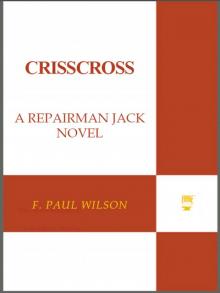 Crisscross
Crisscross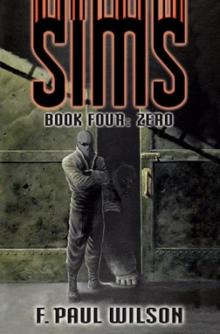 Ground Zero
Ground Zero Short Stories
Short Stories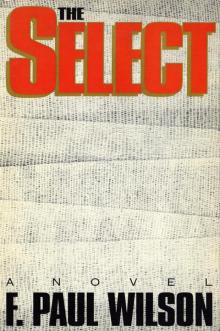 The Select
The Select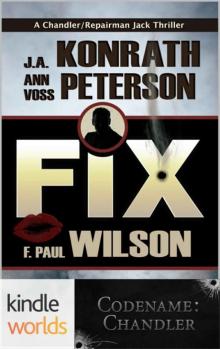 Codename
Codename Bloodline
Bloodline A Soft Barren Aftershock
A Soft Barren Aftershock The Tomb
The Tomb The Complete LaNague
The Complete LaNague The Tery
The Tery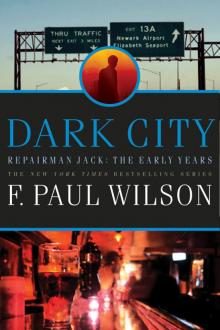 Dark City
Dark City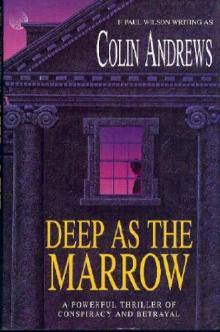 Deep as the Marrow
Deep as the Marrow The Fifth Harmonic
The Fifth Harmonic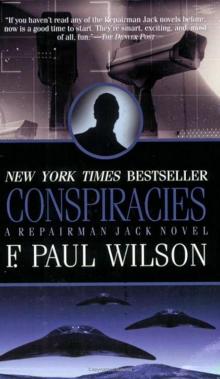 Conspiracies
Conspiracies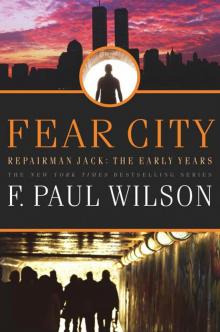 Fear City
Fear City Wheels Within Wheels
Wheels Within Wheels Wayward Pines
Wayward Pines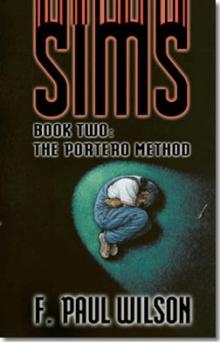 The Portero Method
The Portero Method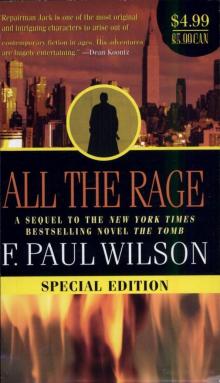 All the Rage
All the Rage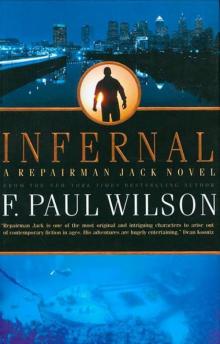 Infernal
Infernal The Barrens & Others
The Barrens & Others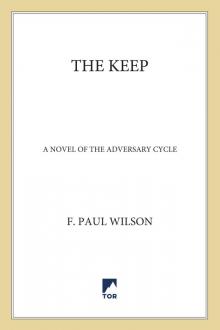 The Keep
The Keep Quick Fixes: Tales of Repairman Jack
Quick Fixes: Tales of Repairman Jack Virgin
Virgin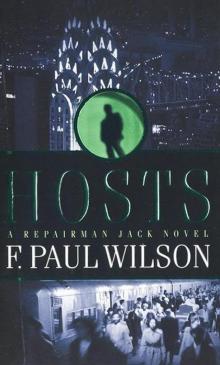 Hosts
Hosts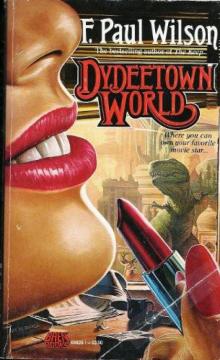 Dydeetown World
Dydeetown World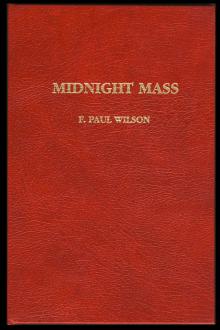 Midnight Mass
Midnight Mass Black Wind
Black Wind The Christmas Thingy
The Christmas Thingy The Last Rakosh
The Last Rakosh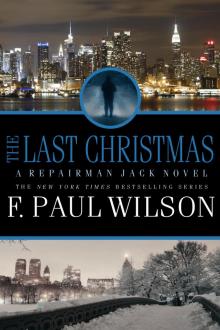 The Last Christmas: A Repairman Jack Novel
The Last Christmas: A Repairman Jack Novel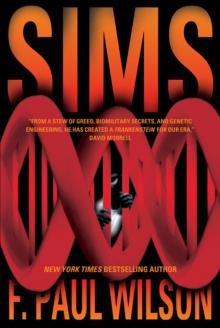 SIMS
SIMS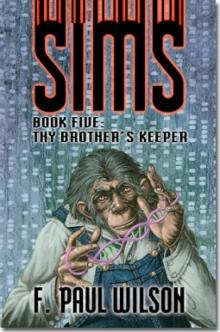 Thy Brother's Keeper
Thy Brother's Keeper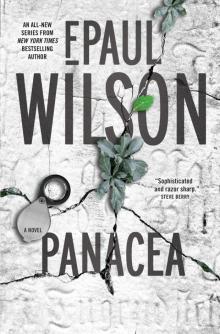 Panacea
Panacea The Touch
The Touch Scenes from the Secret History
Scenes from the Secret History Scenes From the Secret History (The Secret History of the World)
Scenes From the Secret History (The Secret History of the World)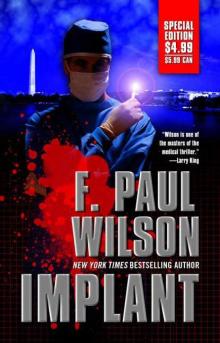 Implant
Implant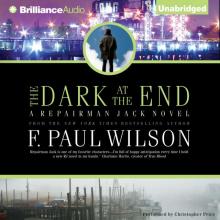 The Dark at the End
The Dark at the End Fatal Error
Fatal Error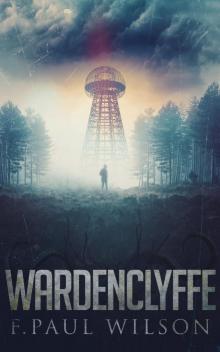 Wardenclyffe
Wardenclyffe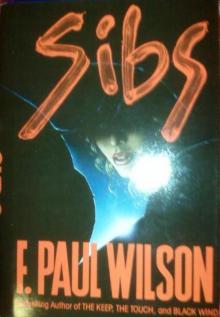 Sibs
Sibs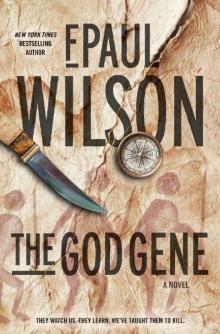 The God Gene
The God Gene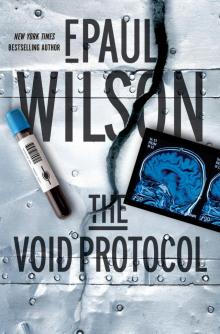 The Void Protocol
The Void Protocol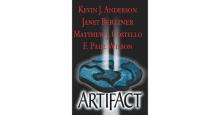 Artifact
Artifact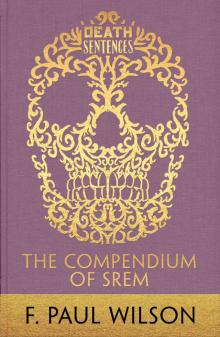 The Compendium of Srem
The Compendium of Srem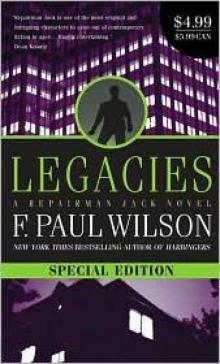 Legacies
Legacies Reprisal
Reprisal Jack: Secret Vengeance
Jack: Secret Vengeance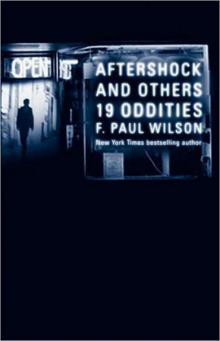 Aftershock & Others: 19 Oddities
Aftershock & Others: 19 Oddities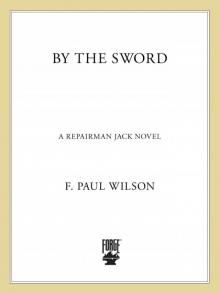 By the Sword
By the Sword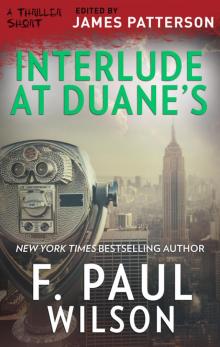 Interlude at Duane's (Thriller: Stories to Keep You Up All Night)
Interlude at Duane's (Thriller: Stories to Keep You Up All Night)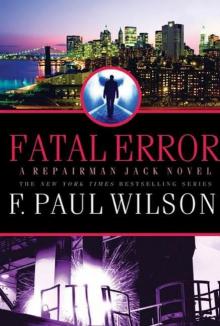 Fatal Error rj-13
Fatal Error rj-13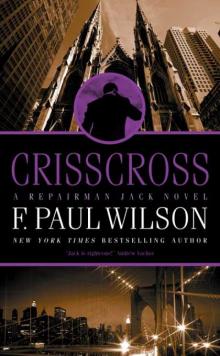 Crisscross rj-8
Crisscross rj-8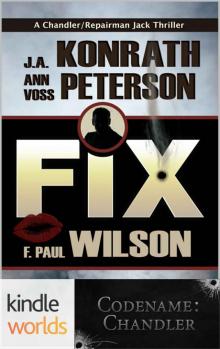 Codename: Chandler: Fix (Kindle Worlds Novella)
Codename: Chandler: Fix (Kindle Worlds Novella)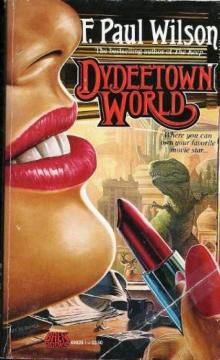 Dydeetown World lf-4
Dydeetown World lf-4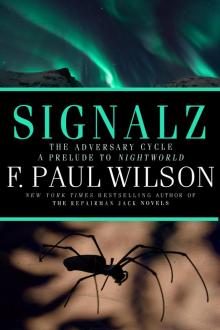 Signalz
Signalz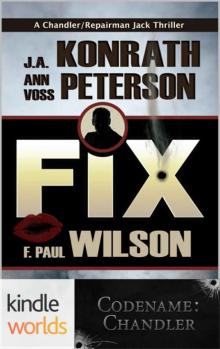 Codename_Chandler_Fix
Codename_Chandler_Fix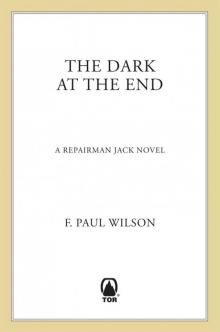 The Dark at the End (Repairman Jack)
The Dark at the End (Repairman Jack)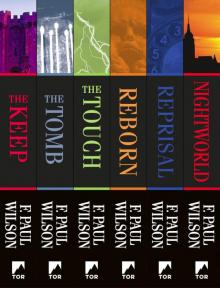 The Complete Adversary Cycle: The Keep, the Tomb, the Touch, Reborn, Reprisal, Nightworld (Adversary Cycle/Repairman Jack)
The Complete Adversary Cycle: The Keep, the Tomb, the Touch, Reborn, Reprisal, Nightworld (Adversary Cycle/Repairman Jack)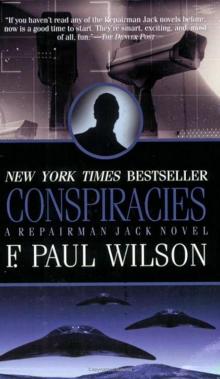 Repairman Jack 03 - Conspiracies
Repairman Jack 03 - Conspiracies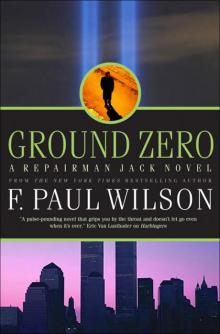 Ground Zero rj-13
Ground Zero rj-13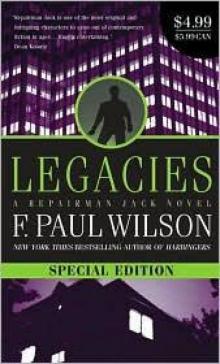 Repairman Jack 02 - Legacies
Repairman Jack 02 - Legacies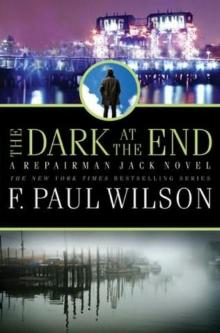 The Dark at the End rj-15
The Dark at the End rj-15![Repairman Jack [02]-Legacies Read online](http://i1.bookreadfree.com/i/03/21/repairman_jack_02-legacies_preview.jpg) Repairman Jack [02]-Legacies
Repairman Jack [02]-Legacies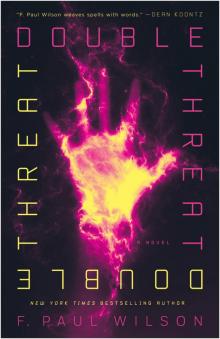 Double Threat
Double Threat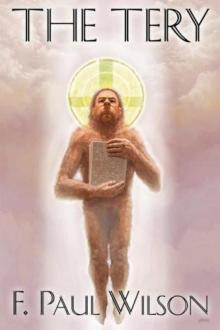 The Tery lf-5
The Tery lf-5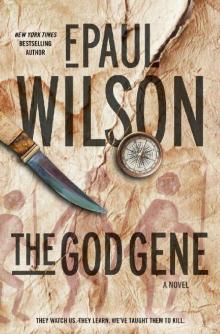 The God Gene: A Novel
The God Gene: A Novel Wayward Pines: The Widow Lindley (Kindle Worlds Novella)
Wayward Pines: The Widow Lindley (Kindle Worlds Novella)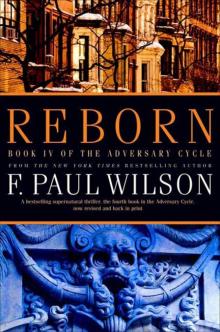 Reborn ac-4
Reborn ac-4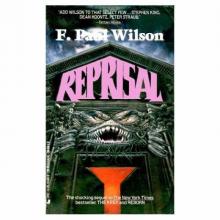 Reprisal ac-5
Reprisal ac-5 New Title 1
New Title 1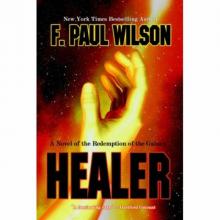 Healer lf-3
Healer lf-3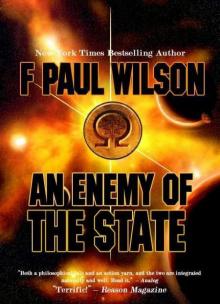 An Enemy of the State lf-1
An Enemy of the State lf-1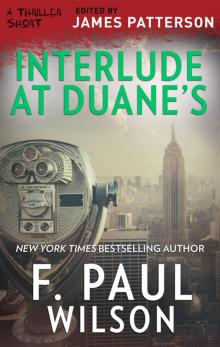 Interlude at Duane's
Interlude at Duane's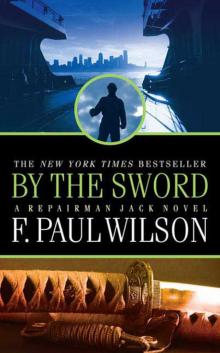 By the Sword rj-12
By the Sword rj-12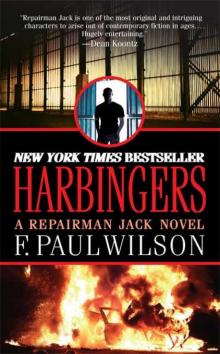 Hardbingers rj-10
Hardbingers rj-10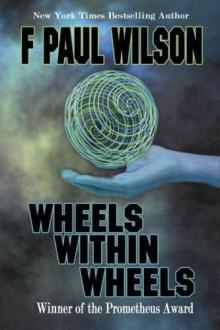 Wheels Within Wheels lf-2
Wheels Within Wheels lf-2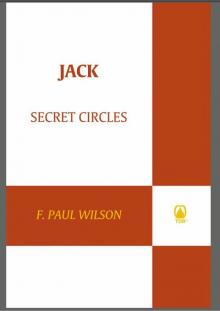 Jack: Secret Circles
Jack: Secret Circles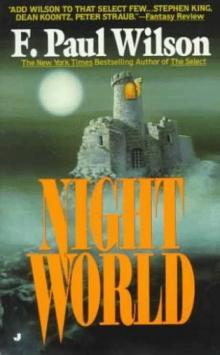 Nightworld ac-6
Nightworld ac-6 Quick Fixes - tales of Repairman Jack
Quick Fixes - tales of Repairman Jack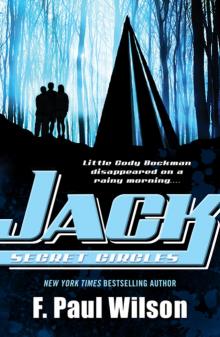 Secret Circles yrj-2
Secret Circles yrj-2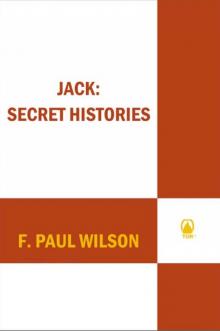 Jack: Secret Histories
Jack: Secret Histories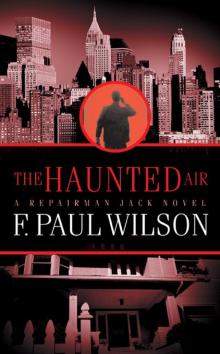 Haunted Air rj-6
Haunted Air rj-6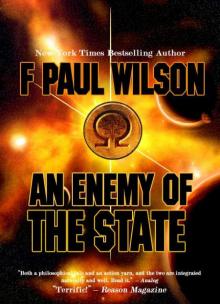 An Enemy of the State - a novel of the LaNague Federation (The LaNague Federation Series)
An Enemy of the State - a novel of the LaNague Federation (The LaNague Federation Series)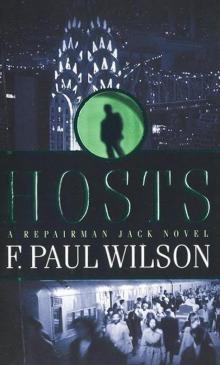 Repairman Jack 05 - Hosts
Repairman Jack 05 - Hosts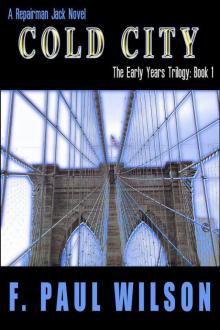 Cold City (Repairman Jack - the Early Years Trilogy)
Cold City (Repairman Jack - the Early Years Trilogy)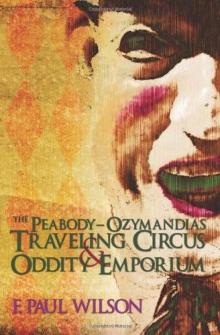 The Peabody-Ozymandias Traveling Circus & Oddity Emporium
The Peabody-Ozymandias Traveling Circus & Oddity Emporium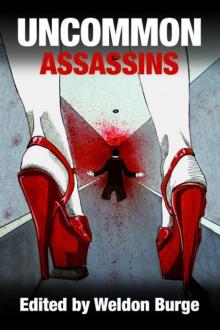 Uncommon Assassins
Uncommon Assassins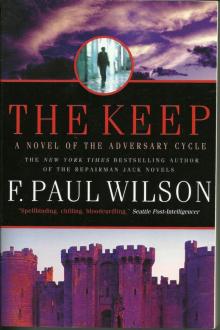 Adversary Cycle 01 - The Keep
Adversary Cycle 01 - The Keep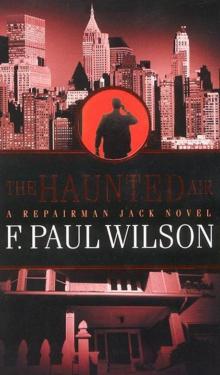 Repairman Jack 06 - The Haunted Air
Repairman Jack 06 - The Haunted Air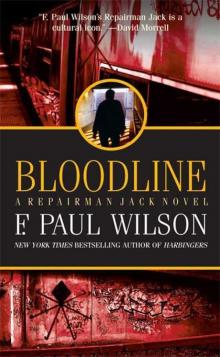 Bloodline rj-11
Bloodline rj-11 Ultimate Supernatural Horror Box Set
Ultimate Supernatural Horror Box Set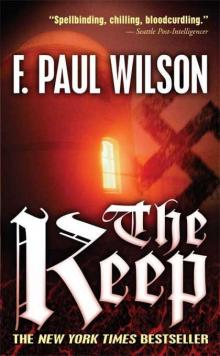 The Keep ac-1
The Keep ac-1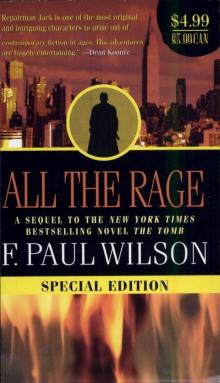 Repairman Jack 04 - All the Rage
Repairman Jack 04 - All the Rage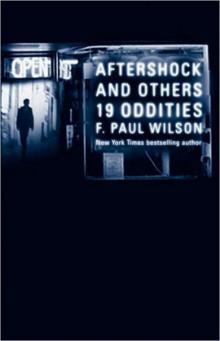 Aftershock & Others
Aftershock & Others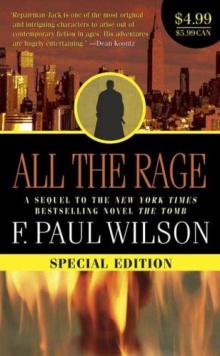 All the Rage rj-4
All the Rage rj-4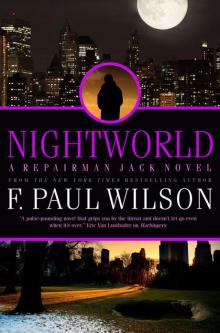 Nightworld (Adversary Cycle/Repairman Jack)
Nightworld (Adversary Cycle/Repairman Jack)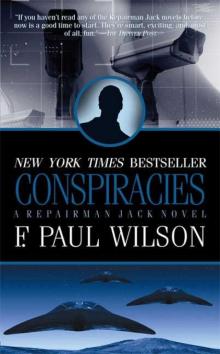 Conspircaies rj-3
Conspircaies rj-3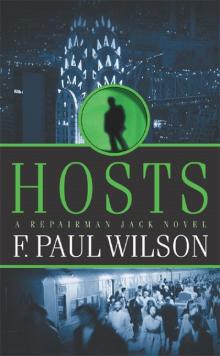 Hosts rj-5
Hosts rj-5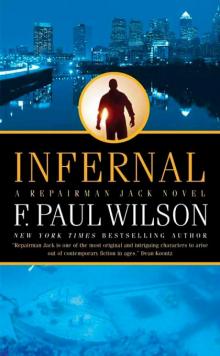 Infernal rj-9
Infernal rj-9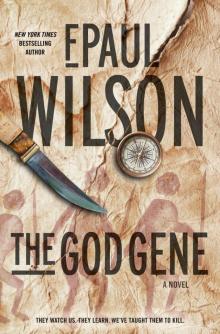 The God Gene: A Novel (The ICE Sequence)
The God Gene: A Novel (The ICE Sequence)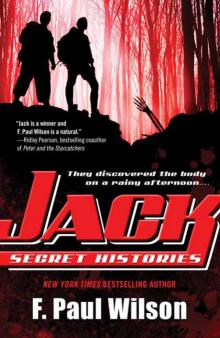 Secret Histories yrj-1
Secret Histories yrj-1